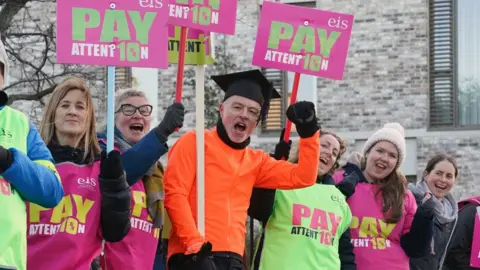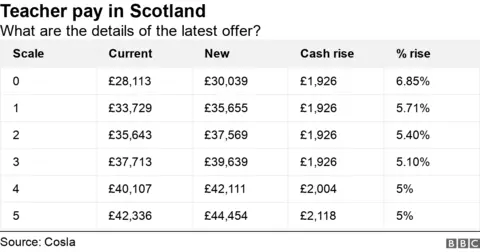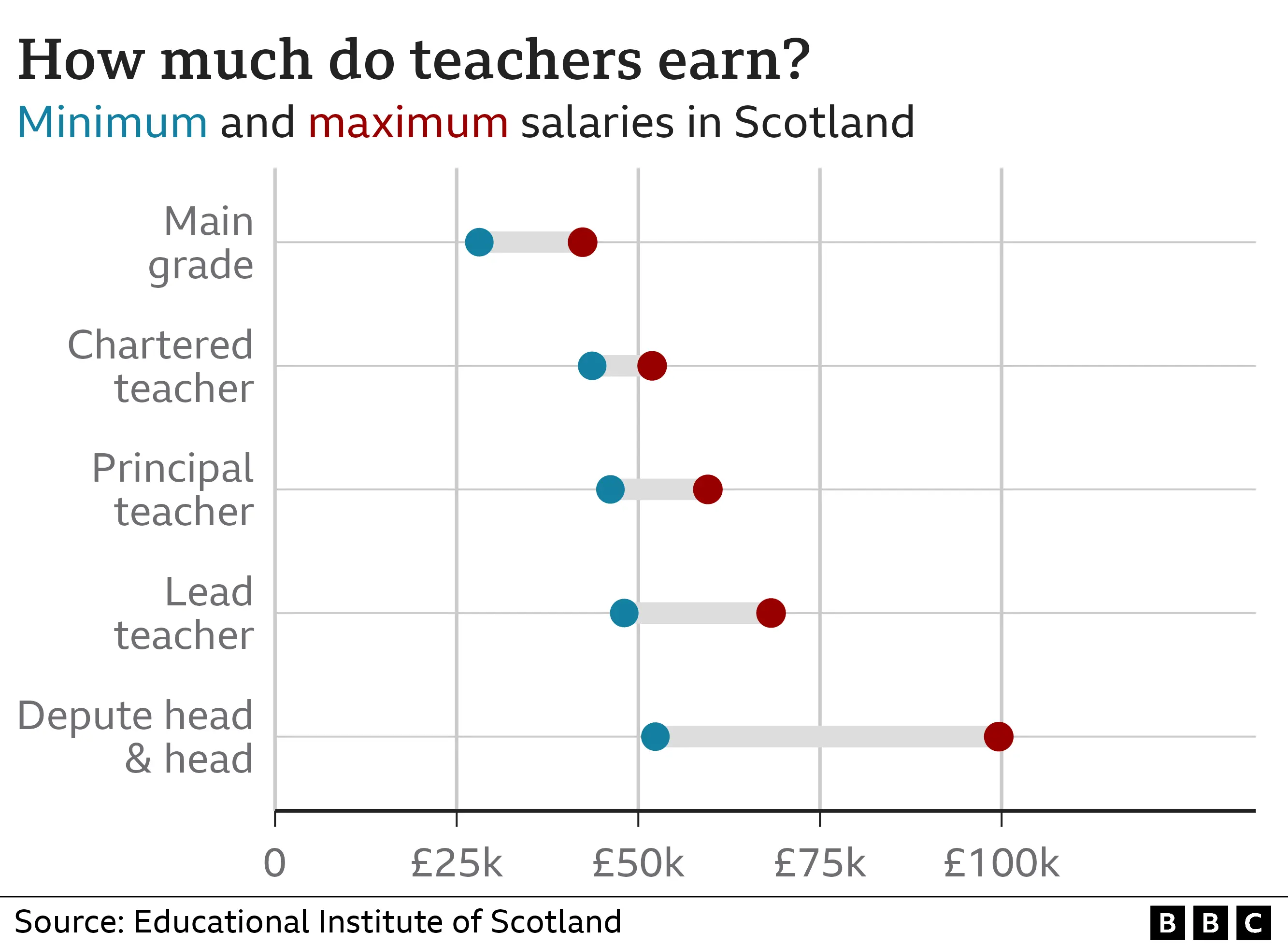Scottish secondary schools to close again as teachers strike
 PA Media
PA MediaThousands of secondary school students are facing another day off school as teachers' unions formally rejected the latest pay deal.
East Ayrshire Council said all its secondary schools would be closed because of next week's strike by the SSTA and NASUWT unions.
Inverclyde Council said most of its secondary schools would be closed to S1, S2 and S3 students.
Other councils are still to confirm arrangements.
The Teachers' Panel of the Scottish Negotiating Committee for Teachers (SNCT), the negotiating forum for teachers' pay in Scotland, said the Scottish government's offer was "wholly unacceptable to Scotland's teachers".
It formally rejected the deal on Wednesday.
Almost all schools in Scotland were closed on Thursday last week because of a strike by EIS, the largest education union.
The SSTA and the NASUWT are holding strike action next Wednesday and Thursday. They plan to target different council areas each day.

Which council areas will be affected?
The local authorities affected by the SSTA and NASUWT strike on 7 December:
Argyll and Bute; Dumfries and Galloway; East Ayrshire; East Dunbartonshire; East Renfrewshire; Eilean Siar; City of Glasgow; Highland; Inverclyde; North Ayrshire; North Lanarkshire; Orkney; Renfrewshire; Shetland; South Ayrshire; South Lanarkshire; West Dunbartonshire
Already confirmed:
- East Ayrshire Council - secondary schools and Park School, a facility in Kilmarnock for pupils with additional support needs (ASN) will close;
- Inverclyde - secondary schools and Craigmarloch School for ASN will close;
- Argyll and Bute Council - Campbeltown Grammar School will close but other secondaries will be open to some pupils;
- West Dunbartonshire Council - all schools expected to remain open.
The local authorities affected by the SSTA and NASUWT strike on 8 December:
City of Aberdeen; Angus; Aberdeenshire; Clackmannanshire; Dundee City; City of Edinburgh; East Lothian; Falkirk; Fife; Midlothian; Moray; Perth and Kinross; Scottish Borders; Stirling; West Lothian

In general, next week's strikes are not expected to lead to the complete closure of large numbers of schools because the SSTA and NASUWT have far fewer members than the EIS which represents about 80% of teachers.
The teachers' unions want a 10% pay rise for all teachers, instead of a deal weighted towards lower-paid staff.
The latest pay offer - tabled last week - would have seen a rise of between 5% and 6.85% for teachers on the main teachers' pay scale.
SNCT chairman Des Morris said all the unions representing Scotland's teachers were "united in rejection of this wholly unacceptable and divisive offer from COSLA and the Scottish government".
"The offer that we have rejected unanimously today is neither credible nor fair, nor does it make any tangible improvement to the previously rejected offer," he added.

Under the terms of the latest offer, pay rises would be capped for those earning above £60,000 - principally some heads and deputes.
The so-called "differentiated" pay offer is a problem for the unions. Although they want a bigger rise for all their members, they also want to maintain differentials between teachers on different grades - in part to help ensure that people want to take up promoted posts.
No formal talks are currently scheduled between employers and the teachers' unions.
Teachers are employed by councils but their terms and conditions are consistent across Scotland. Councils get much of their money from the Scottish government and any pay offer has to be affordable to both the government and all 32 of Scotland's councils.

The Scottish government has argued that a bigger pay rise for teachers would mean cuts and savings elsewhere in education budgets.
If the dispute is not resolved, further strike action is planned by the EIS in January.
First there will be a national strike spread over two days - one day will target primary schools, the other secondaries.
Then a rolling programme of strikes will begin on 16 January. This rolling programme will see strikes in primary and secondary schools in two different council areas each day over the course of 16 consecutive school days. The first of these 24-hour strikes will take place in Glasgow and East Lothian.
Over the course of the EIS action in January and early February, each school will face two days of strike action. The union is not singling out individual schools or council areas as it did during the long-running teachers' dispute in the mid-1980s.
